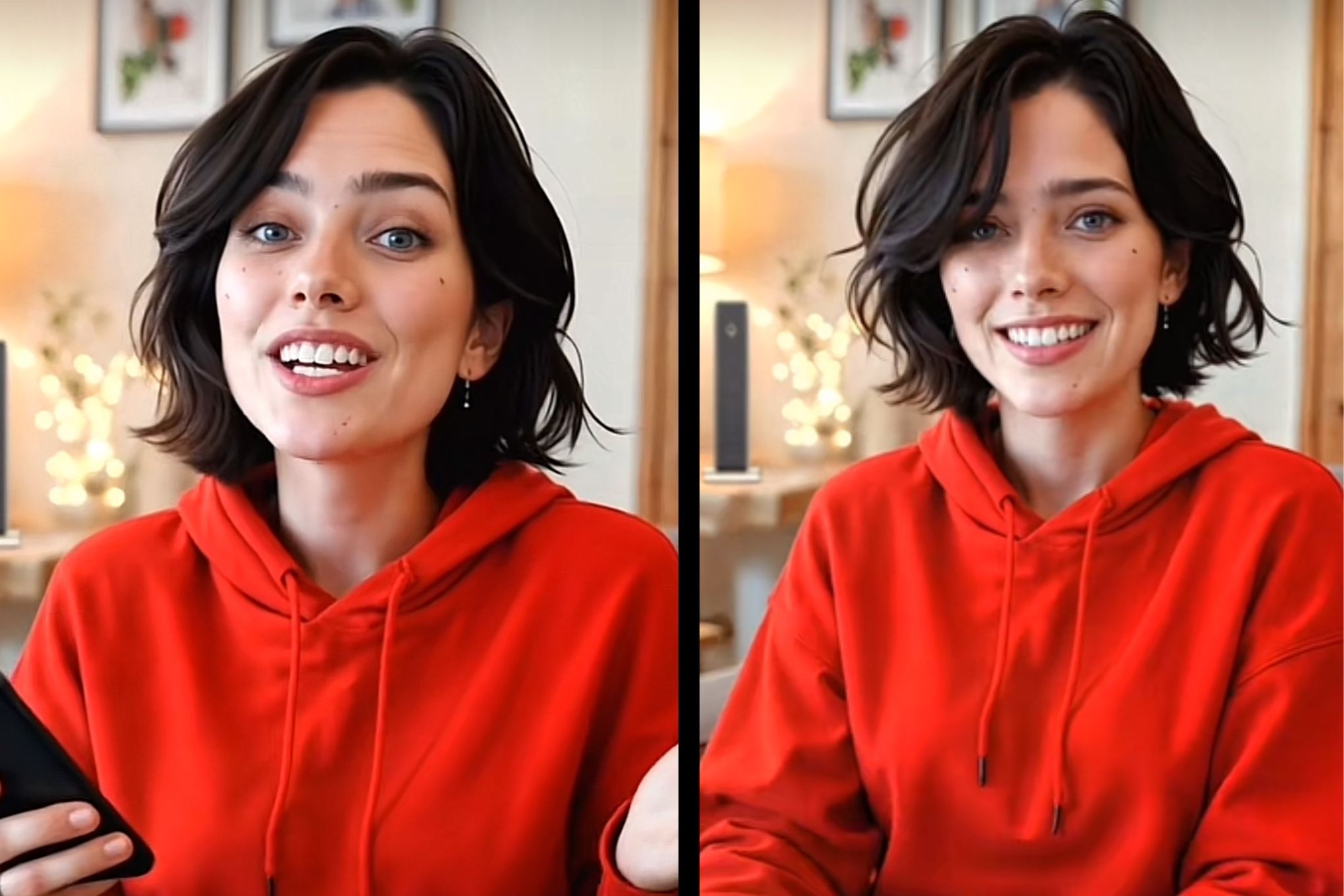Vodafone just crossed a new line in synthetic media marketing. The telecommunications giant is running TikTok ads featuring an entirely AI-generated presenter, complete with telltale digital artifacts that viewers immediately noticed. The campaign represents a growing trend of brands replacing human influencers with artificial ones, raising questions about authenticity in digital advertising.
Vodafone just stepped into the uncanny valley of digital marketing, and viewers noticed immediately. The telecommunications company is running TikTok ads across Germany featuring what appears to be a perfectly normal young woman promoting internet services — except she doesn't exist. The AI-generated presenter exhibits classic synthetic media tells: hair that moves unnaturally, facial moles that vanish between frames, and that subtle but unmistakable uncanny valley effect that makes viewers' brains register something is 'off.' When confronted by commenters asking why the company couldn't use 'a real person in front of the camera,' Vodafone didn't dodge the question. 'We are testing different styles of advertising — this time with AI,' the company responded in German comments, according to machine translation from The Verge. In another reply, they doubled down: 'AI is so much a part of everyday life these days that we also try it out in advertising.' The admission reveals how mainstream synthetic media has become for major brands. This isn't Vodafone's first AI advertising experiment. The company released a fully AI-generated commercial last year where every single shot was artificially created, signaling a systematic embrace of generative technology in their marketing stack. The telegraph giant's bold move comes as artificial influencers are rapidly gaining traction across social media platforms. Virtual personalities like Lil' Miquela — created by tech company Dapper Labs — have already secured partnerships with luxury brands including Calvin Klein, Prada, and BMW, according to recent New York Times reporting. The phenomenon represents a seismic shift in how brands approach influencer marketing. Traditional partnerships require negotiating rates, scheduling conflicts, and managing human personalities. AI presenters offer complete creative control, zero scheduling issues, and potentially lower long-term costs — but at the expense of authentic human connection. For Vodafone, the experiment appears designed to test consumer tolerance for synthetic spokespersons. The company's transparent acknowledgment suggests they're comfortable with viewers knowing the presenter is artificial, potentially banking on novelty factor over deception. The broader implications ripple across the creator economy. As generation technology becomes more sophisticated and accessible, brands may increasingly question why they need human influencers at all. The technology promises perfect spokespersons who never age, never have scandals, and never demand salary increases. However, the immediate consumer reaction to AI presenter reveals a crucial marketing challenge. Viewers instantly detected the artificial elements, suggesting current generative technology hasn't crossed the threshold where synthetic humans can seamlessly replace real ones without detection. The 'tell' factors — unnatural hair movement, disappearing facial features, and subtle expression artifacts — still trigger subconscious recognition that something isn't quite right.












